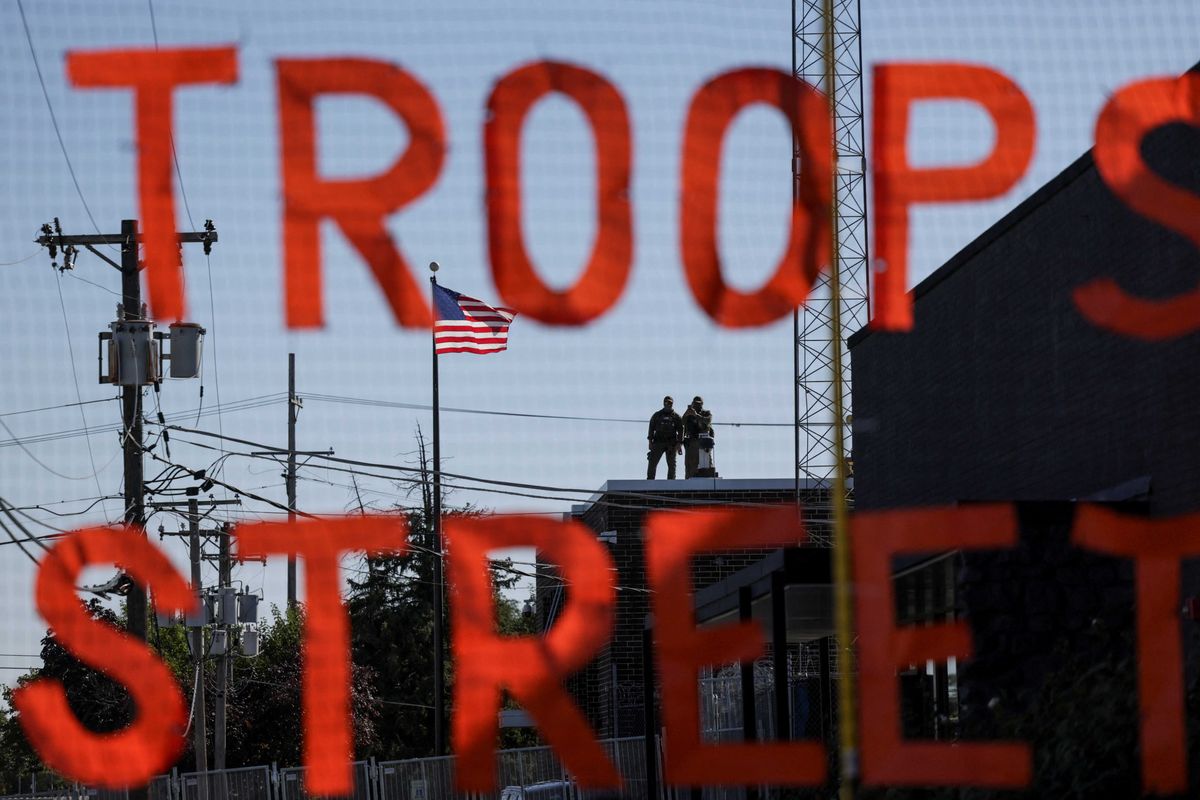
President Donald Trump's effort to send National Guard troops to curb crime suffered a setback on Thursday as a federal judge blocked the move for at least 14 days.
Trump sent National Guard troops to Chicago earlier this month, citing rampant crime and to aid federal immigration enforcement efforts. Trump called the U.S. city a "hellhole" of crime, even though police data showed significant decreases in violent crime. About 300 troops were federalized from the Illinois National Guard, and 200 troops were sent via the Texas National Guard.
Judge April Perry on Thursday orally granted an emergency motion to block the deployment, the Chicago Tribune reported. A written ruling is expected on Friday.
Chicago Tribune reporter Jason Meisner relayed the judge's remarks, noting she described the facts surrounding a Broadview Immigration and Customs Enforcement facility.
"On Sept. 27, Perry says, CBP informed Broadview police they should prepare for increased use of tear gas on protesters, saying it was 'going to be a s---show.' (that's a quote)," noted Meisner on X. He added: "Perry says after the mayhem that day, state police and other local law enforcement got involved in crowd control and things calmed down. Despite this, on Oct. 4, the president issued a memorandum stating the situation in Illinois was out of control, Perry says."
The judge noted that on Oct. 5, the Department of Homeland Security's internal communications team called it a "great weekend" and that state police were “difference makers” in controlling the situation in Broadview, Meisner said.
The judge noticed the discrepancy.
"Perry: The defense portrays an entirely different scenario that 'cannot be aligned' with the view of local officials. Perry says she 'simply can’t credit the defendant’s declarations' due in large part of a growing body of evidence that DHS's views are 'simply unreliable.'
Later, the judge said a rebellion is "a deliberate organized resistance openly opposing the laws and government as a whole" via armed violence, said Meisner.
"I have found no credible evidence that there is a danger of rebellion in the state of Illinois," she said.




